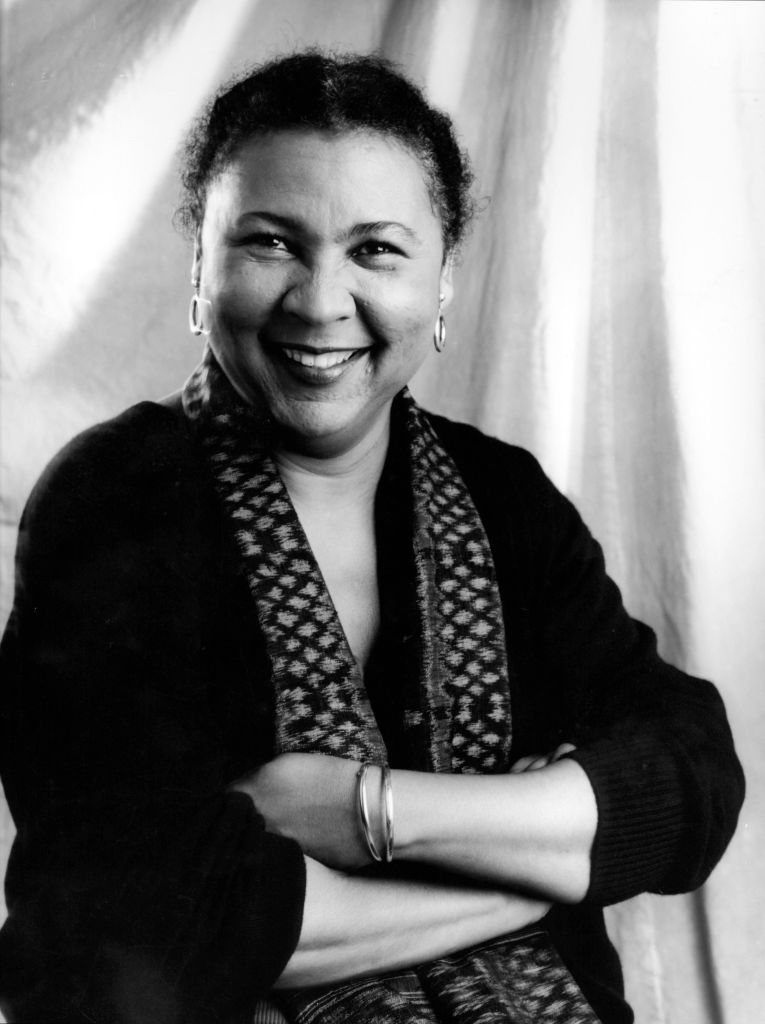
Source: Anthony Barboza / Getty
Feminist, author, poet and professor bell hooks, who wrote fiercely about Black feminism has passed away. hooks died on Dec. 15, 2021 in her home in Berea, Kentucky surrounded by her family, WHOP AM Radio reported. She was 69-years-old. Her cause of death hasn’t been disclosed.
Here’s a statement from bell hook’s family regarding her passing. @rolandsmartin @JoyAnnReid @CornelWest @marclamonthill @jemelehill @BenjaminPDixon pic.twitter.com/F6fgKzVkSU
— Enter Ebony (@Enter_Ebony) December 15, 2021
hooks was born and raised in Hopkinsville, Kentucky as one of seven siblings. While being educated in a segregated school system, she developed a love for writing and began writing and reciting poetry. While attending Stanford University on a full scholarship, she starting writing Ain’t I a Woman: Black Women and Feminism, which focused on sexism against Black women throughout American history and was later published in 1981. She graduated from Stanford with a bachelor of arts degree in English in 1973, and went on to obtain her master of arts degree in English from the University of Wisconsin–Madison in 1976. After receiving her Ph.D. in literature from the University of California, Santa Cruz, she began her career as a teacher and professor. hooks started her career at her alma mater UC Santa Cruz and also taught at San Francisco State University. She then took her talents to Yale University where she served as an assistant professor of African-American studies. hooks also taught women’s studies at Oberlin College in Ohio beginning in 1988. In 1994, she settled at City College of New York as an English professor. In 2004, she moved back to her hometown of Kentucky to teach at Berea College as a distinguished professor in residence. In 2014, Berea College honored her by opening the bell hooks Institute, were a collection of her art, personal artifacts, essays and copies of her books are housed.
“Berea College is deeply saddened about the death of bell hooks, Distinguished Professor in Residence in Appalachian Studies, prodigious author, public intellectual and one of the country’s foremost feminist scholars,” read a statement from Berea College according to the Lexington Herald Leader.
Outside of her career as a professor, Watkins was a distinguished author who wrote under the pseudonym bell hooks, which was her great-grandmother’s name. She wanted it to be lowercase because she thought it would refocus people more on her message. In 1978, she published her first book of poems, And There We Wept, followed by Ain’t I a Woman: Black Women and Feminism. Her works led to her being considered the “godmother of feminist theory.” She wrote over 40 books of essays, poems and children’s books from 1981 to 2008 like Talking Back: Thinking Feminist, Happy to be Nappy, Thinking Black, Yearning: Race, Gender, and Cultural Politics, Grump Grown Growl, Breaking Bread: Insurgent Black Intellectual Life with Cornell West, A Woman’s Mourning Song, Black Looks: Race and Representation, Feminist Theory: From Margin to Center and many more.
One of her last published works was an essay where she gave a critical analysis on Beyoncé’s Lemonade. In the essay titled Moving Beyond Pain, she commended her but also criticized her for feeding into the narrative that portrays the Black woman as a victim.
Even though Beyoncé and her creative collaborators daringly offer multidimensional images of Black female life, much of the album stays within a conventional stereotypical framework, where the Black woman is always a victim….It is only as Black women and all women resist patriarchal romanticization of domination in relationships can a healthy self-love emerge that allows every Black female, and all females, to refuse to be a victim. Ultimately Lemonade glamorizes a world of gendered cultural paradox and contradiction.”
In 2018, she was inducted into the Kentucky Writers’ Hall of Fame.
“I want my work to be about healing,” she told the Herald in 2018 after being inducted. “I am a fortunate writer because every day of my life practically I get a letter, a phone call from someone who tells me how my work has transformed their life.”
RELATED CONTENT: Here’s Why bell hooks Used Lowercase Letters For Her Name


0 Commentaires